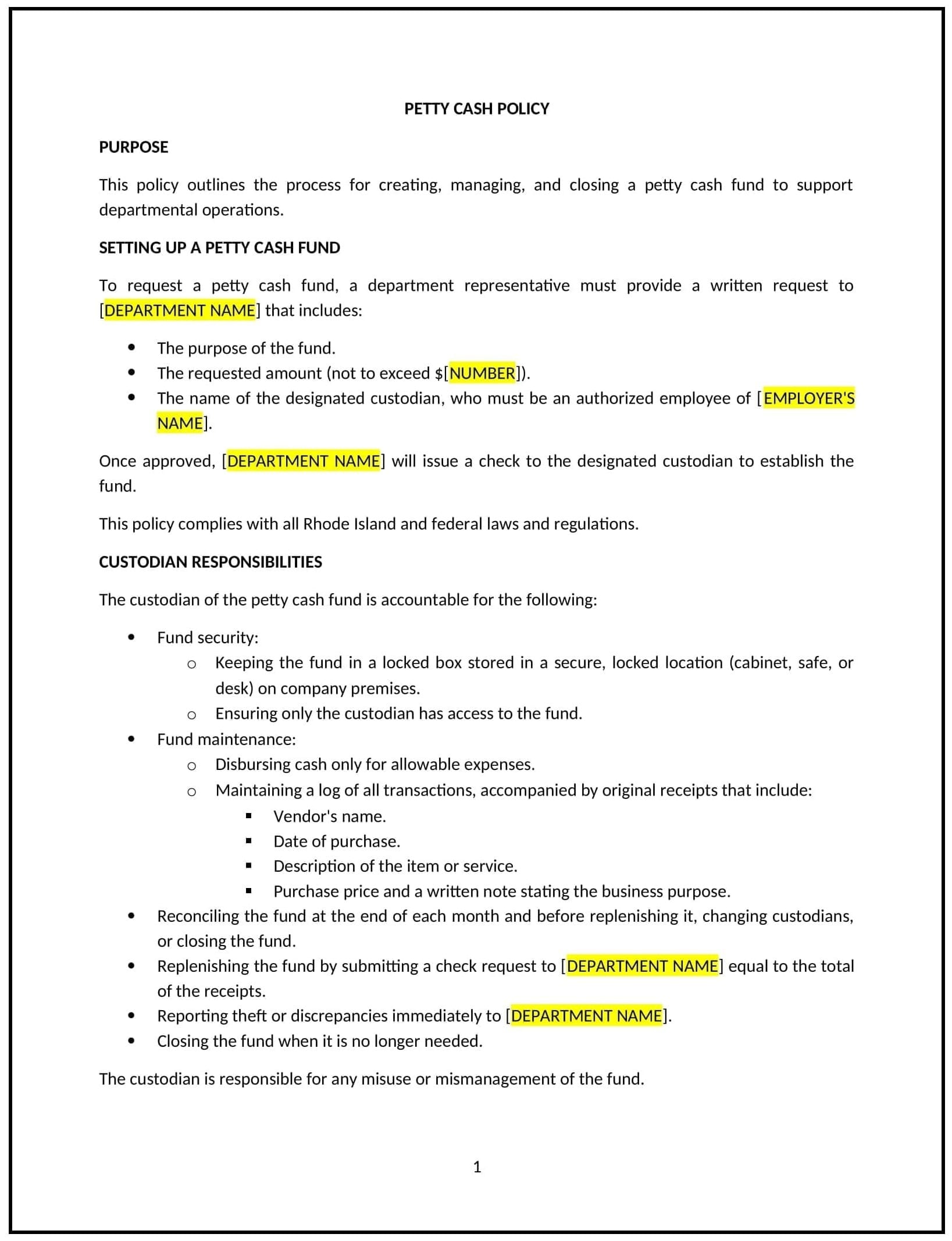Got contracts to review? While you're here for policies, let Cobrief make contract review effortless—start your free review now.

Customize this template for free
Petty cash policy (Rhode Island)
This petty cash policy is designed to help Rhode Island businesses establish guidelines for managing small cash expenditures. It outlines procedures for disbursing, tracking, and reconciling petty cash funds.
By adopting this policy, businesses can ensure accountability, reduce misuse, and maintain accurate financial records.
How to use this petty cash policy (Rhode Island)
- Define scope: Clarify the purpose of petty cash and the types of expenses it can cover, such as office supplies or minor repairs.
- Establish fund limits: Specify the maximum amount of petty cash available and the maximum amount per transaction.
- Set disbursement procedures: Outline steps for requesting and approving petty cash disbursements, including required documentation.
- Address reconciliation: Provide guidelines for reconciling petty cash funds, including receipts and balance checks.
- Train employees: Educate staff on proper petty cash usage and documentation requirements.
- Monitor compliance: Regularly review petty cash transactions to ensure adherence to the policy.
- Review and update: Assess the policy annually to ensure it aligns with evolving business needs and financial practices.
Benefits of using this petty cash policy (Rhode Island)
This policy offers several advantages for Rhode Island businesses:
- Ensures accountability: Provides clear guidelines for disbursing and tracking petty cash funds.
- Reduces misuse: Minimizes the risk of unauthorized or inappropriate expenditures.
- Maintains accuracy: Supports accurate financial records by requiring documentation and reconciliation.
- Enhances transparency: Communicates petty cash procedures clearly to employees, reducing confusion or disputes.
- Builds trust: Demonstrates a commitment to responsible financial management.
Tips for using this petty cash policy (Rhode Island)
- Communicate the policy: Share the policy with employees and include it in the employee handbook.
- Provide training: Educate staff on proper petty cash usage and documentation requirements.
- Monitor compliance: Regularly review petty cash transactions to ensure adherence to the policy.
- Address issues promptly: Take corrective action if petty cash funds are misused or documentation is incomplete.
- Update regularly: Assess the policy annually to ensure it aligns with evolving business needs and financial practices.